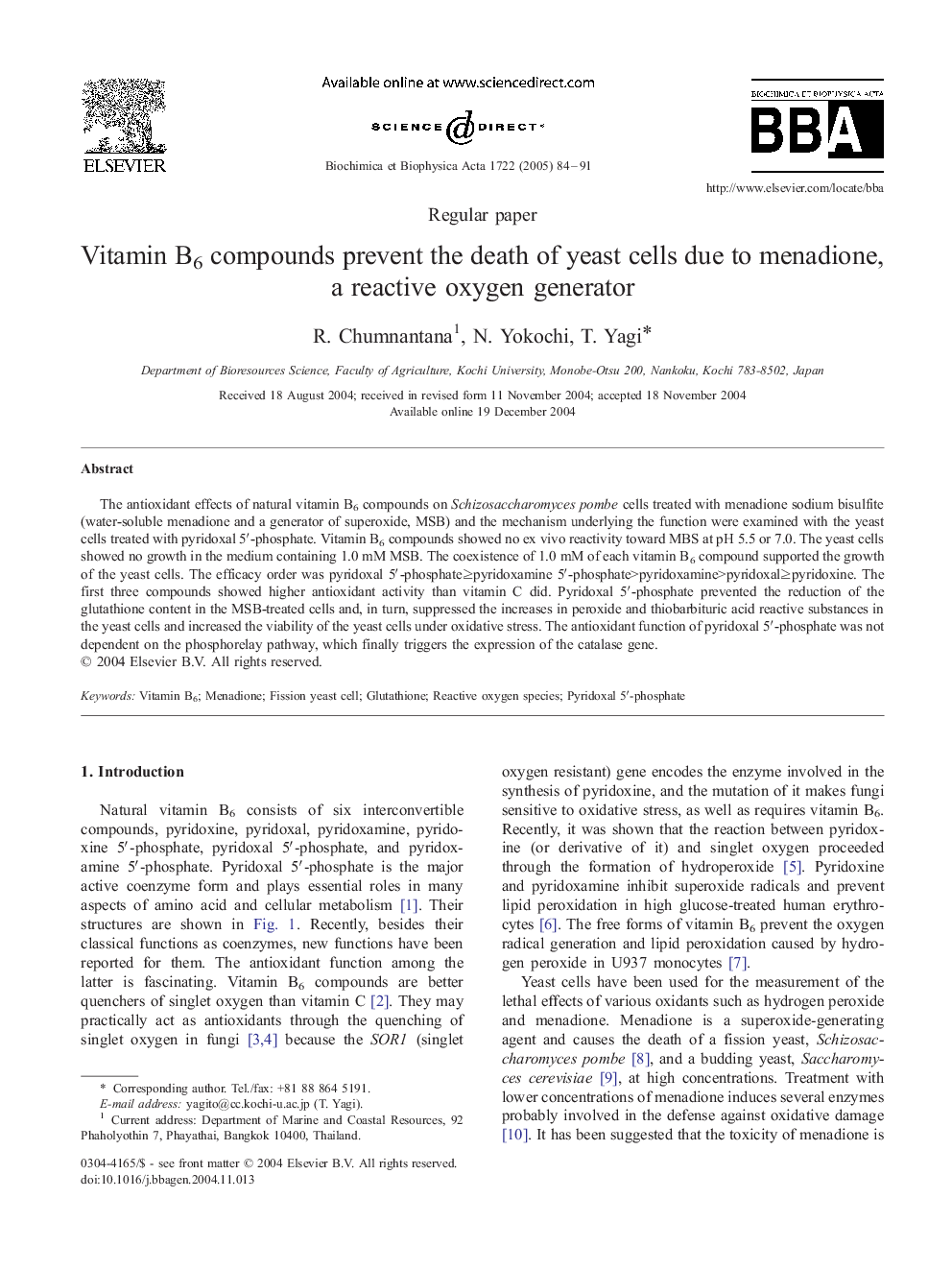| Article ID | Journal | Published Year | Pages | File Type |
|---|---|---|---|---|
| 10801118 | Biochimica et Biophysica Acta (BBA) - General Subjects | 2005 | 8 Pages |
Abstract
The antioxidant effects of natural vitamin B6 compounds on Schizosaccharomyces pombe cells treated with menadione sodium bisulfite (water-soluble menadione and a generator of superoxide, MSB) and the mechanism underlying the function were examined with the yeast cells treated with pyridoxal 5â²-phosphate. Vitamin B6 compounds showed no ex vivo reactivity toward MBS at pH 5.5 or 7.0. The yeast cells showed no growth in the medium containing 1.0 mM MSB. The coexistence of 1.0 mM of each vitamin B6 compound supported the growth of the yeast cells. The efficacy order was pyridoxal 5â²-phosphateâ¥pyridoxamine 5â²-phosphate>pyridoxamine>pyridoxalâ¥pyridoxine. The first three compounds showed higher antioxidant activity than vitamin C did. Pyridoxal 5â²-phosphate prevented the reduction of the glutathione content in the MSB-treated cells and, in turn, suppressed the increases in peroxide and thiobarbituric acid reactive substances in the yeast cells and increased the viability of the yeast cells under oxidative stress. The antioxidant function of pyridoxal 5â²-phosphate was not dependent on the phosphorelay pathway, which finally triggers the expression of the catalase gene.
Related Topics
Life Sciences
Biochemistry, Genetics and Molecular Biology
Biochemistry
Authors
R. Chumnantana, N. Yokochi, T. Yagi,
